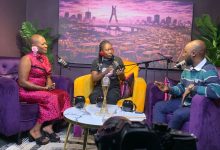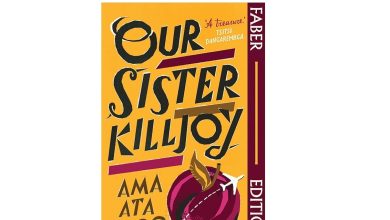
|
Getting your Trinity Audio player ready...
|
Today, September 8, is International Literacy Day, which is usually about reading and writing. But literacy is more than the ability to recognise letters on a page. It is also about engaging with ideas, questioning what you are told, and acting on knowledge. For us at Naija Feminists Media, literacy means feminist understanding. It is the ability to know how patriarchy works, to recognise inequality when you see it, and to be equipped to respond.
Feminist literacy is not a one-time achievement. It is a habit that you build by reading, listening, questioning, and unlearning every day. If you want to keep up with feminism in Nigeria and beyond, here are ways our work helps you stay ahead.
- Read articles on our website
Our website features pieces written by our team and other feminists who bring their expertise and lived realities into the conversation. Lawyer and feminist writer Dogo Joy recently contributed an article titled “Widows’ Rights in Nigeria: Can a Next of Kin Bar a Widow From Inheritance?” In it, she explained Nigeria’s legal stance, showing that the law is against disinheriting widows. Her analysis challenged harmful cultural practices that strip women of their rights despite legal protections. Reading articles like this builds feminist literacy by helping you understand both how patriarchy oppresses women and what the law says.
- Subscribe to our newsletter
Each week, our newsletter opens with a short introduction that frames ongoing debates in simple and clear terms. It is written for anyone who wants to understand what is happening without the noise of mainstream media. We also use the newsletter to share links, campaigns, and recommended reads. It is a starting point for new readers and a refresher for those familiar with feminist analysis.
- Follow our book recommendations
We do not recommend books for decoration. They are chosen because they help make sense of our struggles today. From African feminist scholars to global voices, our recommendations build a bridge between theory and everyday life. Pick one, read it, and talk about it with people around you. That is how feminist literacy moves from the page to the community.
- Learn feminist language through our content
Words like patriarchy, consent, misogyny, or intersectionality are not buzzwords. They are tools we use in our writing to help you see how they apply in real life, whether in conversations about workplace harassment, reproductive rights, or political organising. The more you read, the easier it becomes to use this language yourself.
- Stay engaged on our social media
We are active on Instagram, Twitter, Facebook, YouTube, LinkedIn, TikTok, and WhatsApp. Each platform offers something different such as short reflections, videos, campaign updates, or community discussions. Following us keeps your feminist literacy alive because you are part of real time conversations and not only theory.
- Use our content to read critically elsewhere
Once you start reading our articles and newsletters, you begin to notice gaps in mainstream news and politics. Who is left out? Who benefits from the story being told? That questioning is part of feminist literacy, and our resources give you the lens to do it confidently.
- Put what you learn into practice
Feminist literacy is not about hoarding knowledge. Share our articles. Recommend the books we highlight. Use feminist terms in everyday conversations. Call out harmful narratives. Literacy is only complete when it changes how you act.
International Literacy Day reminds us that what we read shapes how we live. At Naija Feminists Media, we provide the tools through articles, newsletters, books, and conversations. Your task is to use them, grow from them, and keep feminist literacy active in your own life.






